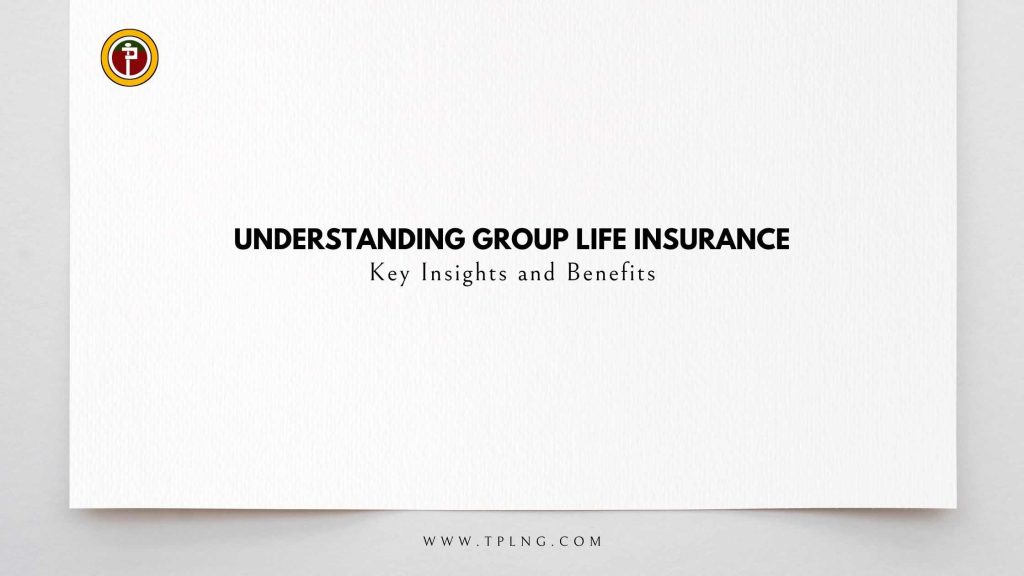A Group Life Insurance contract covers the Members of a particular group. The group could be employees, members of a club, society, association, etc. It provides financial compensation in the event of the death of a member of the group.
In Nigeria, just like Motor (Third-Party) insurance, Group Life insurance, among others, is compulsory. This means every employer with at least three employees on the company’s payroll must have a group life insurance policy for the employees.
Now, despite its importance, there are still misconceptions and a lack of understanding about this type of insurance. This article delves into the essentials of group life insurance, its statutory requirements, benefits, and the obligations of employers in ensuring the well-being of their employees.
What is Group Life Insurance?
Group life insurance is a death-benefit scheme intended for a group of people, typically organized through an employer, formal organization, church, community, or even a group of friends.
This policy covers death and can occasionally be extended to cover supplementary contracts like permanent disability or medical expenses.
Unlike other insurance lines, which are contracts of indemnity, group life insurance is a contract of benefit, ensuring financial support to beneficiaries upon the death of the policyholder (the assured).
Also read Unlocking the Potential of Insurance in Nigeria
Statutory Requirements
In Nigeria, group life insurance is mandated by law. The Pension Reform Act of 2004, further amended in 2014, requires employers with a minimum of three employees to provide group life insurance.
This policy must cover at least three times the total emolument of an employee, which includes basic salary, housing, and transport allowances.
The purpose is to ensure that in the event of an employee’s death, the beneficiaries receive a substantial lump sum to support their financial needs.
Benefits of Group Life Insurance
- Financial Security for Beneficiaries: The primary advantage of group life insurance is providing financial support to the deceased employee’s dependents, creating an estate that offers a lump sum to cover living expenses and other needs.
- Employer-Funded: This policy is solely funded by the employer, with no contributions required from employees, making it an attractive welfare package.
- Cost-Effective: Group life insurance is relatively inexpensive for employers. Premiums are determined based on the overall group characteristics rather than individual health assessments, making it one of the most affordable insurance options available.
Employee Awareness and Monitoring
Employees should be informed about a group life insurance policy through their organization. Employees need to be aware that this policy is not contributory and that any claim of salary deductions for premium payments by the employer is incorrect.
Transparency from the employer’s side ensures that employees and their families can confidently rely on the coverage provided.
Claim Process and Documentation
In the event of an employee’s death, the claim process involves several critical steps:
- Notification: Immediate notification of death to the insurance company by the employer.
- Medical Certificate: Submission of a medical certificate stating the cause of death, issued by the hospital that confirmed the death.
- Police Report: If the death resulted from an accident, a police report is required.
The employer, in coordination with the beneficiary, submits these documents to facilitate the claim process. A clear demarcation between the next of kin (who can provide information about the deceased) and the beneficiary (who is entitled to receive the insurance proceeds) must be maintained.
Addressing Non-Compliance
If an employer fails to provide the mandated group life insurance, employees or their families have the right to pursue legal action. The law supports the claim for compensation beyond the statutory minimum if the employer has not fulfilled their obligation.
Legal recourse ensures that employees’ families receive the benefits they are entitled to, safeguarding their financial future.
In summary, group life insurance is a vital policy that provides significant financial security to employees’ families, funded entirely by employers.
Awareness and proper implementation of this insurance ensure that beneficiaries receive the support they need during difficult times.
Employers must comply with statutory requirements, and employees should be well-informed about their rights and the benefits available to them.
Insurance companies must also fulfill their contractual obligations and pay claims promptly. This holistic approach to group life insurance strengthens the overall welfare and stability of the workforce.
Take advantage of the next article, subscribe now!
Have questions about claim settlements or need assistance with your insurance policy? Our team is here to help! Reach out to us via email at info@tplng.com or give us a call at 0905-776-6182. We’re committed to ensuring genuine claim settlements and supporting our valued members.
TPL, your satisfaction is our priority.




